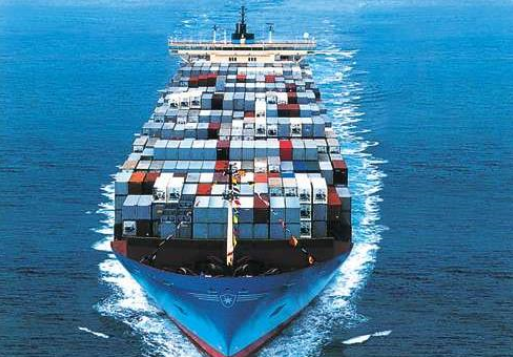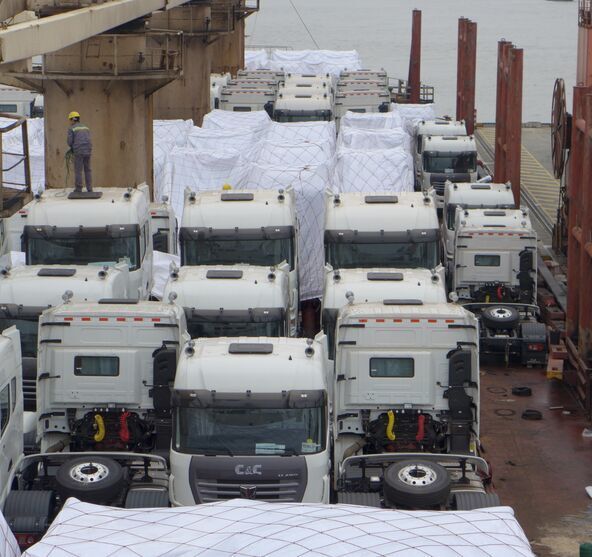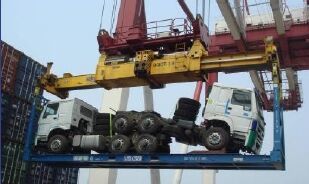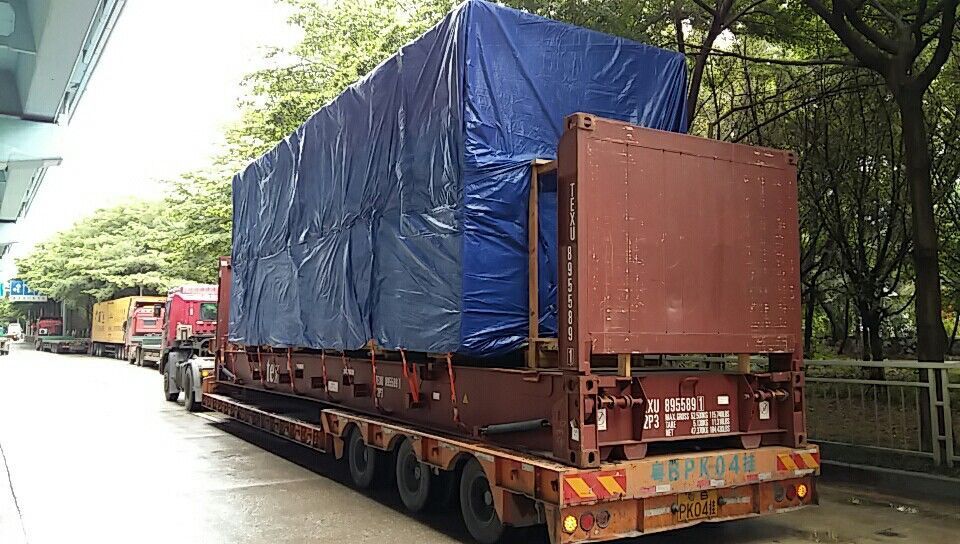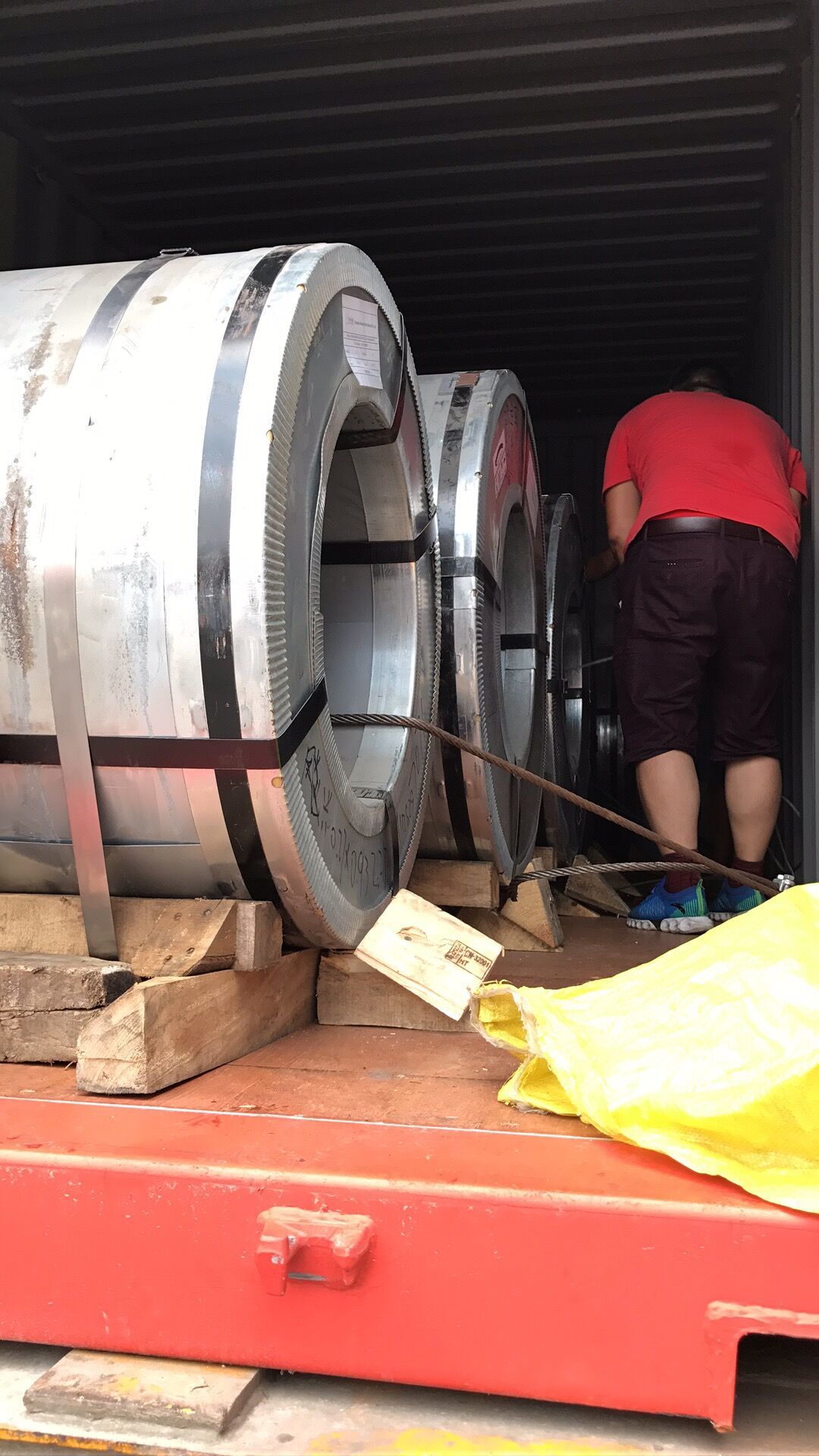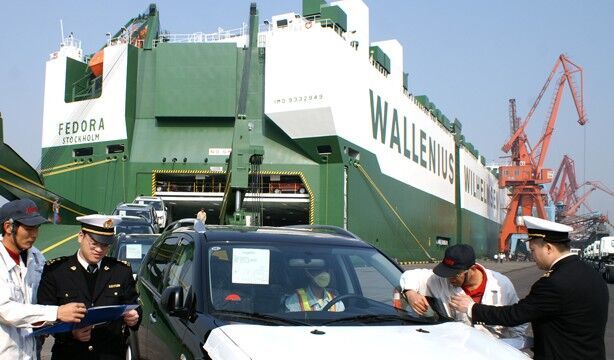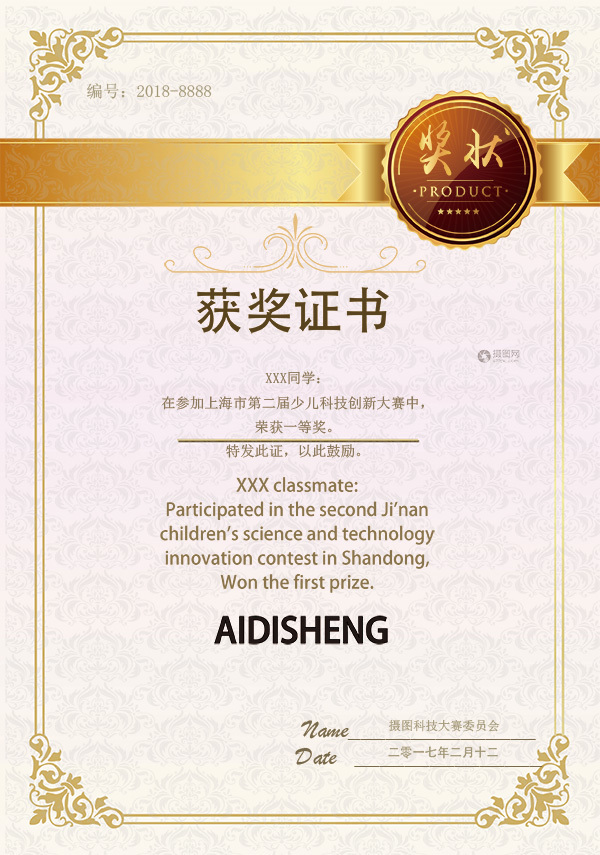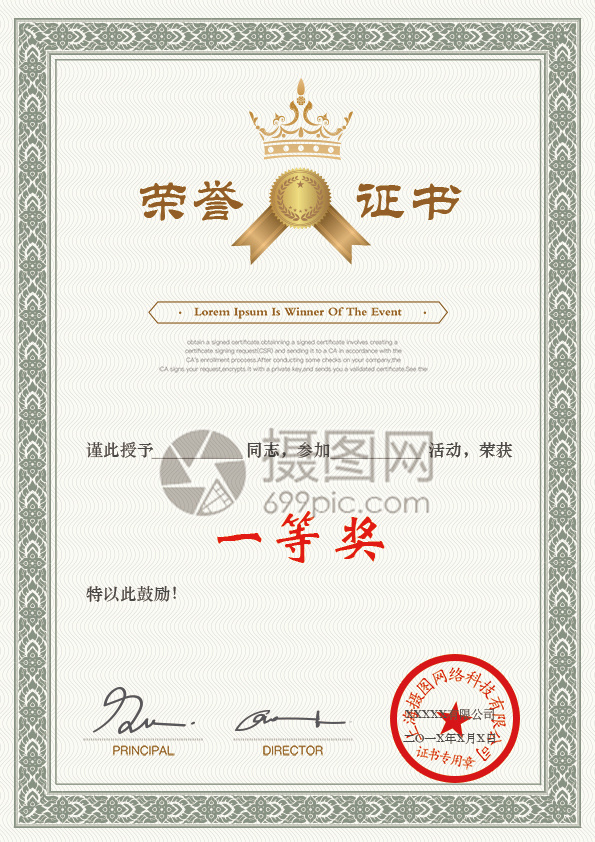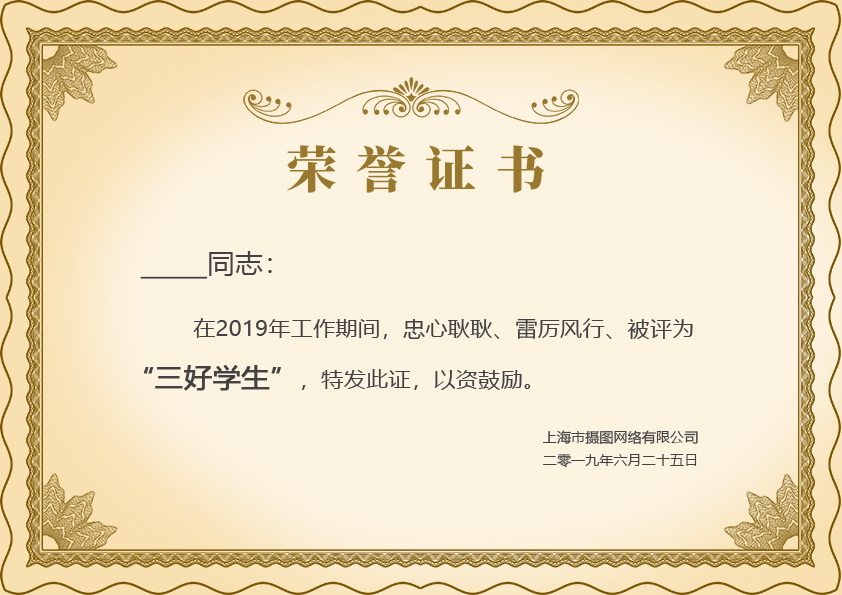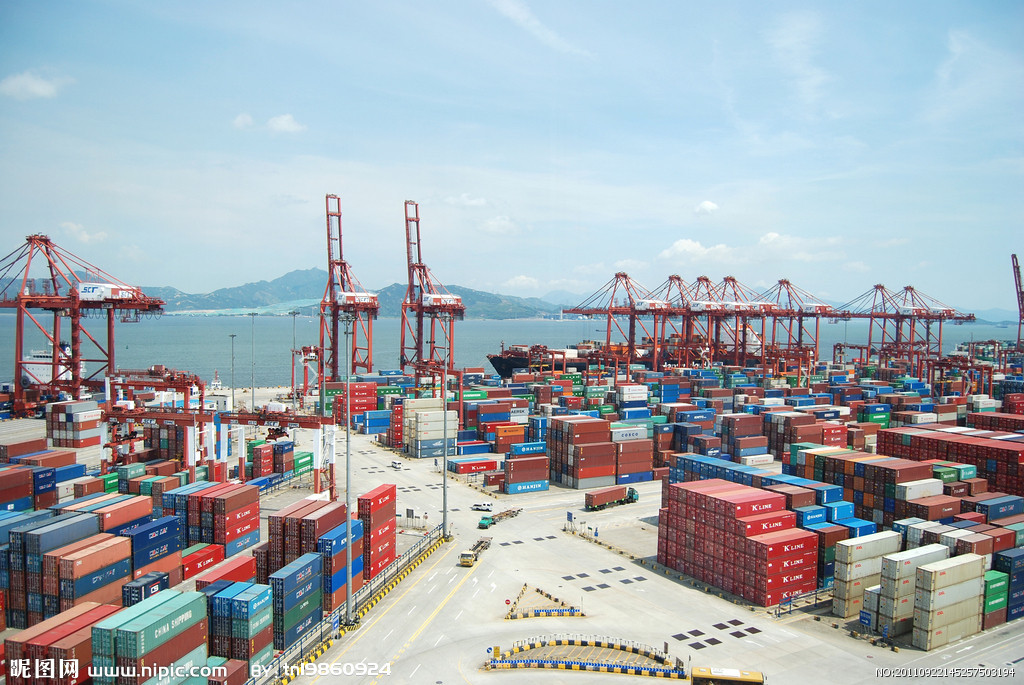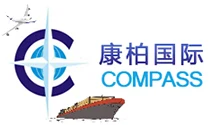General Administration of Customs Order No. 124: Issuance of the “Measures of the People’s Republic of China Customs on the Collection of Taxes on Import and Export Goods”
Category:
Keywords:
- Product Description
-
Order No. 124 of the General Administration of Customs issued the Measures of the People's Republic of China for the Administration of Customs Duties on Import and Export Goods
Order No. 124 of the General Administration of Customs of the People's Republic of China
Note: Article 9 of the Approach has been revised by Decree No. 198 of the General Administration of Customs Modified
The Administrative Measures of the Customs of the People's Republic of China on Taxation of Import and Export Goods, which were deliberated and adopted at the Executive Meeting on December 15, 2004, are hereby promulgated and shall come into force as of March 1, 2005. The Measures for the Administration of Customs Taxation promulgated on September 30, 1986 shall be repealed at the same time.
Director Mou Xinsheng
January 4, 2005
Measures of the Customs of the People's Republic of China for the Administration of Taxation on Import and Export Goods
Chapter I General Provisions
Article 1 In order to ensure the implementation of the tax policy of the State, strengthen the administration of customs tax revenue, ensure the collection of tax according to law, protect the State tax revenue, and safeguard the legitimate rights and interests of taxpayers, These Measures are formulated in accordance with the Customs Law of the People's Republic of China (hereinafter referred to as the Customs Law), the Regulations of the People's Republic of China on Import and Export Duties (hereinafter referred to as the Customs Regulations) and other relevant laws and administrative regulations.
Article 2 The customs shall follow the principles of accurate classification, correct valuation, tax collection based on the rate, reduction and remission according to law, serious refund and reimbursement, and timely storage in the work of collecting taxes.
Article 3 These Measures shall apply to the administration of collection of import and export duties and collection of taxes on behalf of the customs in import links.
The collection and administration of import tax on imported goods and tonnage tax on ships shall be carried out in accordance with the provisions of relevant laws, administrative regulations and departmental rules. Where there are no provisions in relevant laws, administrative regulations and departmental rules, these Measures shall apply.
Article 4 The customs shall, in accordance with the relevant provisions of the State, assume the duty of confidentiality, properly keep the materials provided by taxpayers involving trade secrets, and shall not provide them to the public unless otherwise provided by laws and administrative regulations.
The duty payer may request the Customs in writing to keep its trade secrets, and specify the contents that need to be kept secret, but it may not refuse to provide the relevant information to the Customs on the grounds of trade secrets.
Chapter II Collection of Duties on Import and Export Goods
Section 1 Declaration and Review
Article 5 When taxpayers import and export goods, they shall go through the declaration formalities with the Customs in accordance with law and submit relevant documents in accordance with relevant provisions. When the Customs deems it necessary, the duty payer shall also provide the relevant materials needed to determine the classification, customs value and place of origin of the commodities. Where the materials provided are in a foreign language, the taxpayer shall provide a Chinese translation and be responsible for the content of the translation when required by the Customs.
Import and export duty reduction and exemption goods, the duty payer shall also submit the "Import and export goods tax exemption Certificate" issued by the competent customs (hereinafter referred to as the "Tax exemption Certificate", the format is detailed in Annex 1), except for the goods listed in Article 72 of these measures.
Article 6 Taxpayers shall, in accordance with the relevant provisions of laws, administrative regulations and customs rules on commodity classification, examination and verification of customs value and management of place of origin, truthfully declare the commodity name, tariff code (commodity number), specifications and models, price, transportation premium and other related expenses, place of origin, quantity, etc., of import and export goods.
Article 7 The customs may require taxpayers to make supplementary declarations in accordance with relevant provisions in order to examine and determine the commodity classification, customs value, place of origin, etc., of import and export goods. Taxpayers may also take the initiative to request supplementary declaration when they deem it necessary.
Article 8 The Customs shall, in accordance with the provisions of laws, administrative regulations and customs rules, examine and approve the commodity names, specifications and models, tariff codes, country of origin, prices, transaction conditions and quantities of the import and export goods declared by taxpayers.
The customs may, according to the specific situation of the customs clearance at the port and the import and export of goods, only conduct procedural review of the contents of the declaration in the customs clearance of goods, and then carry out substantive verification on whether the declared price, commodity classification, origin, etc., is true and correct after the release of the goods.
Article 9 The Customs may inspect the import and export goods, organize laboratory tests and inspections or verify relevant enterprises for the purpose of examining and determining the commodity classification, customs value and place of origin of import and export goods.
After examination, the customs finds that the list of import and export tariff numbers declared by the taxpayer is wrong, it shall be re-determined in accordance with the relevant rules and regulations of commodity classification.
After examination and verification, the Customs finds that the price of the import and export goods declared by the taxpayer does not meet the conditions of the transaction price, or the transaction price cannot be determined, it shall be assessed separately in accordance with the relevant provisions on the examination and determination of the customs value of the import and export goods.
After examination and verification, the Customs finds that the origin of the import and export goods declared by the taxpayer is wrong, it shall, by examining the certificate of origin provided by the taxpayer, conducting actual inspection of the goods or examining other relevant documents, in accordance with the relevant provisions of the Customs administration of origin.
After examination and verification, the Customs finds that the application for tax reduction or exemption submitted by the taxpayer or the contents declared do not comply with the relevant provisions on tax reduction or exemption, tax shall be calculated in accordance with the provisions.
Taxpayers who violate customs regulations and are suspected of making false or concealing declarations shall be handed over to the Customs investigation or anti-smuggling department for handling in accordance with relevant provisions.
Article 10 Before the actual import and export of the goods, taxpayers may, in accordance with relevant provisions, apply to the Customs for pre-classification of the import and export goods, pre-examination of the price or pre-determination of the place of origin. After examination and confirmation, the customs shall notify the taxpayer in writing and approve the goods when they are actually imported or exported.
Section 2 Collection of Taxes
Article 11 The customs shall calculate and collect duties on the basis of the tariff code, customs value, place of origin, applicable tax rate and exchange rate of the import and export goods.
Article 12 The Customs shall determine the tariff rates applicable to import and export goods in accordance with the provisions of the Customs Regulations on the application of the most-favorednation tariff rate, the agreed tariff rate, the preferential tariff rate, the general tariff rate, the export tariff rate, the tariff quota rate or the provisional tariff rate, and the application of anti-dumping measures, countervailing measures, safeguard measures or the imposition of retaliatory tariffs.
Article 13 For import and export goods, the tariff rate applied on the date on which the customs accepts the declaration for import or export of the goods shall apply.
Where the declaration of imported goods is approved by the Customs before their arrival, the tax rate in effect on the date of entry declared by the means of transport carrying the goods shall apply.
For imported goods transported under customs transit, the tax rate in effect on the date the customs of the designated place of delivery accepts the import declaration for the goods shall apply; if a declaration is made in advance with the approval of the customs before the goods arrive at the designated place of delivery, the tax rate in effect on the date the means of transport carrying the goods arrives at the designated place of delivery shall apply.
For exported goods transported under customs transit, the tax rate in effect on the date the customs of the place of departure accepts the export declaration for the goods shall apply.
For import and export goods under centralized declaration with customs approval, the tax rate in effect on the date the customs accepts the declaration for the goods each time the goods are imported or exported shall apply.
For imported goods sold by customs according to law due to failure to declare within the prescribed time limit, the tax shall be levied according to the tax rate in effect on the date the means of transport carrying the goods was declared to enter the country.
For import and export goods for which taxes need to be collected due to the violation of regulations by the taxpayer, the tax rate in effect on the date the violation occurred shall apply; if the date of the violation cannot be determined, the tax rate in effect on the date the customs discovered the violation shall apply.
Article 14 Bonded goods, duty-free goods, leased goods, or temporarily imported and exported goods that have been declared for entry and released, and that require tax payment due to one of the following situations, shall apply the tax rate in effect on the date the customs accepts the taxpayer' s re-filling of the customs declaration and processing of the tax payment and related procedures:
(1) Bonded goods that are approved not to be re-exported;
(2) Bonded warehouse goods transferred to the domestic market for sale;
(3) Duty-free goods that are approved for transfer or other uses;
(4) Temporarily imported and exported goods for which taxes may be temporarily not paid, which are approved not to be re-exported or re-imported;
(5) Leased imported g
Service Areas
Questions And Answers
What are the regular maintenance tasks for a website?
Regular website maintenance is crucial for ensuring website security, stable operation, and user experience. Maintenance includes updating website content, checking and repairing website links, backing up data, conducting regular security checks, patching vulnerabilities, and optimizing performance. These tasks help ensure the website's long-term effectiveness and provide a good user experience.
What are the differences between UI and UX in website design?
UI (User Interface) and UX (User Experience) are two important aspects of website design. UI focuses on the visual design, layout, and visual elements of a website, while UX focuses on the overall feeling and interactive experience of users on the website, including usability, navigation, and interaction. Good UI design usually enhances user UX experience.
What types of website hosting services are there?
Website hosting services can be divided into shared hosting, virtual private servers (VPS), dedicated servers, and cloud hosting. Shared hosting involves multiple websites sharing the resources of a single server. VPS is a virtual private server, a dedicated server is an exclusive server, and cloud hosting uses cloud services to provide hosting solutions. Each type has different characteristics and applicable scenarios.
What is the function of website traffic statistics tools?
Traffic statistics tools such as Google Analytics help analyze website traffic data, including visitor sources, traffic volume, and user behavior. By understanding this data, website owners can understand their audience, adjust website content and design, improve user experience, and increase conversion rates.
How to choose the right website building technology for yourself?
The choice of website construction technology depends on your personal technical level and website needs. If you are familiar with programming, you can choose to write your own code using HTML, CSS, and JavaScript. Alternatively, you can consider using existing frameworks or libraries, such as Bootstrap and React, to simplify the development process.
How do I start building my own website?
To build a website, you first need to choose a domain name, which is the website's address. Then, select a suitable hosting provider; the host stores the website's files and data. Next, write the website code or design the pages, and finally upload the website files to the server. In this way, the website can be accessed and browsed on the internet.
Certificate Of Honor
About Us
Force to build a large logistics service provider to solve various logistics problems for cargo owners.
Contact Us
A large logistics service provider for cargo owners to solve various logistics solutions!



